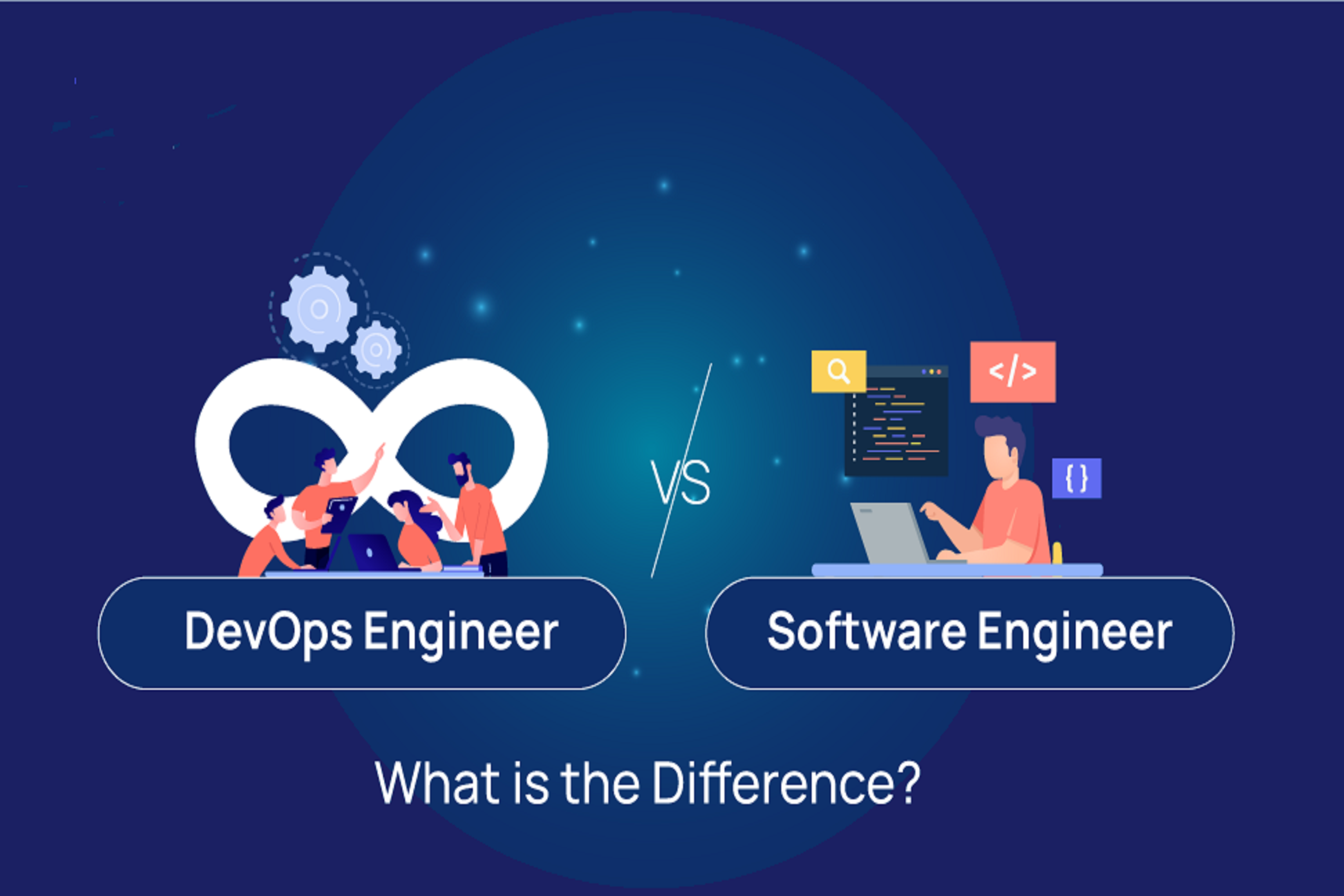DevOps Engineer and Software Engineer are two distinct roles within the software development process. While there may be some overlap in their skills and responsibilities, there are fundamental differences between the two. Here’s a comparison:
Focus and Scope
Software Engineer: A software engineer primarily focuses on designing, developing, and maintaining software applications or systems. They are responsible for writing code, implementing algorithms, and solving complex technical problems. Their work revolves around creating software solutions to meet specific requirements or solve particular challenges.
DevOps Engineer: A DevOps engineer, on the other hand, is concerned with the overall software development lifecycle and the collaboration between development and operations teams. They work on streamlining the deployment, integration, and management of software systems. DevOps engineers focus on automation, continuous integration/continuous deployment (CI/CD), infrastructure management, and ensuring smooth collaboration between different teams involved in the development process.
Responsibilities
Software Engineer: Software engineers are responsible for designing, coding, testing, and debugging software applications. They work closely with business stakeholders and other team members to gather requirements, design software architectures, write code, and optimize performance. They are skilled in programming languages, software development frameworks, and various development tools.
DevOps Engineer: DevOps engineers have a broader set of responsibilities. They are responsible for automating the software development process, including building and deploying applications, managing infrastructure, and ensuring the reliability and scalability of systems. They work on tools and practices related to version control, continuous integration, configuration management, containerization, monitoring, and more.
Skillset
Software Engineer: Software engineers are proficient in programming languages like Java, Python, C++, or JavaScript, depending on the specific technology stack they work with. They have expertise in software development methodologies, algorithms, data structures, and software design patterns. They may also have knowledge of specific frameworks, libraries, or platforms relevant to their area of expertise.
DevOps Engineer: DevOps engineers possess a combination of software development, system administration, and infrastructure skills. They are proficient in scripting languages like Bash, PowerShell, or Python, as well as technologies like Docker, Kubernetes, and cloud platforms (e.g., AWS, Azure). They are knowledgeable about CI/CD tools (e.g., Jenkins, GitLab), configuration management tools (e.g., Ansible, Chef, Puppet), and infrastructure-as-code practices.
Collaboration and Communication
Software Engineer: Software engineers primarily collaborate with other developers, testers, product managers, and stakeholders involved in the software development process. They communicate and coordinate their work to ensure the software meets the desired functionality and quality standards.
DevOps Engineer: DevOps engineers have a broader collaborative role, working closely with development teams, operations teams, and other stakeholders. They facilitate communication and collaboration between these groups, aiming to bridge the gap between development and operations, streamline processes, and improve overall efficiency.
